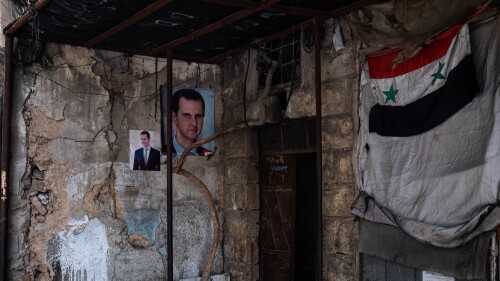This past Saturday, folks, was a big day for the Council on American-Islamic Relations. Its “Leadership Conference & 18th Annual Banquet” at the Marriott Crystal Gateway Hotel in Arlington, Va. lasted from 9 am until past 10 pm.
Sadly, I missed the event. Not that I wouldn’t eagerly have plunked down my $199.00 for a ticket to hear Linda Sarsour, Nihad Awad, Siraj Wahhaj, Al Sharpton, and Dennis Kucinich. Even better, I could have learned CAIR’s “Strategies for Challenging Anti-Islam Legislation and Campaigns” from the horse’s mouth. However, this little clause stopped me short:
All audio, visual and audio/visual devices and photography, filming, recording and taping are strictly prohibited.
(1) That warning is not a one-time thing but CAIR’s standard legalese; for example, it used precisely the same wording for its 2011 conference & banquet, as can be seen quoted here (search for the word “disclaimer”).
(2) Paraphrasing Bob Dole, “the most dangerous place in Washington is between CAIR and a television camera.” Why, then, the sudden shyness from a publicity hound, strictly prohibiting “All audio, visual and audio/visual devices”? Because live events have unscripted moments and CAIR, I suspect, shudders at a random Islamist wandering off the reservation. Its own chairman did this in 1998, announcing in public that “Islam isn’t in America to be equal to any other faith, but to become dominant,” a burst of bluntness that still today impedes CAIR.
(3) CAIR’s disclaimer brings to mind the flap in 2003 at the University of Toronto. Al-Awda, an anti-Zionist group that seeks to eliminate Israel by flooding it with Arabic-speakers, required that all those attending its event sign a spooky “Basis of Unity” statement. In other words, it demanded that all participants subscribe to Al-Awda’s beliefs, including “We support the right of the Palestinian people to resist Israeli colonialism by any means of their choosing.” Hey, CAIR, I’m offering you this idea gratis.
(4) CAIR does have reason to worry about opponents infiltrating its events. Not only did Chris Gaubatz spend six months undercover in CAIR’s Washington headquarters but, more on point, in at least one instance an anti-Islamic activist attended a CAIR event in disguise. That would be Debbie Schlussel, who donned a tight black hijab, presented herself as “Zainab Salih,” and went to a town hall meeting for political candidates in Detroit on Oct. 10, 2004, only to be recognized as herself and called out.
(5) I don’t know if CAIR has actually expelled someone who bought a ticket but David Gaubatz (father of Chris) reports that it had him blocked from attending an Islamic Society of North America event in 2009. As Gaubatz explains, four days before the ISNA conference, CAIR’s attorney “contacted me with a threatening letter demanding that I not attend the ISNA Conference in DC"; and ISNA, which had sent him a confirmation number and welcome letter, in fact did not let him in.
(6) CAIR’s reserving the right to deny someone entry to the event, without compensation, “for any reason” appears to be legal. But it’s unheard of for an outfit claiming to be a human rights organization. This blatant thought control reflects CAIR’s origins in Hamas, the totalitarian Palestinian movement, and points to how Islamists threaten a free society – in addition to their primary effort to apply the Shari’a, a medieval law code.
Screenshot of CAIR’s warning to those about to purchase a ticket to its annual dinner.
Debbie Schlussel at a CAIR event in Detroit in October 2004, as her name was called out.
Al Sharpton gave the keynote speech at the CAIR event. (Credit: Danielle Avel)
Siraj Wahhaj raised money for CAIR. (Credit: Danielle Avel)




